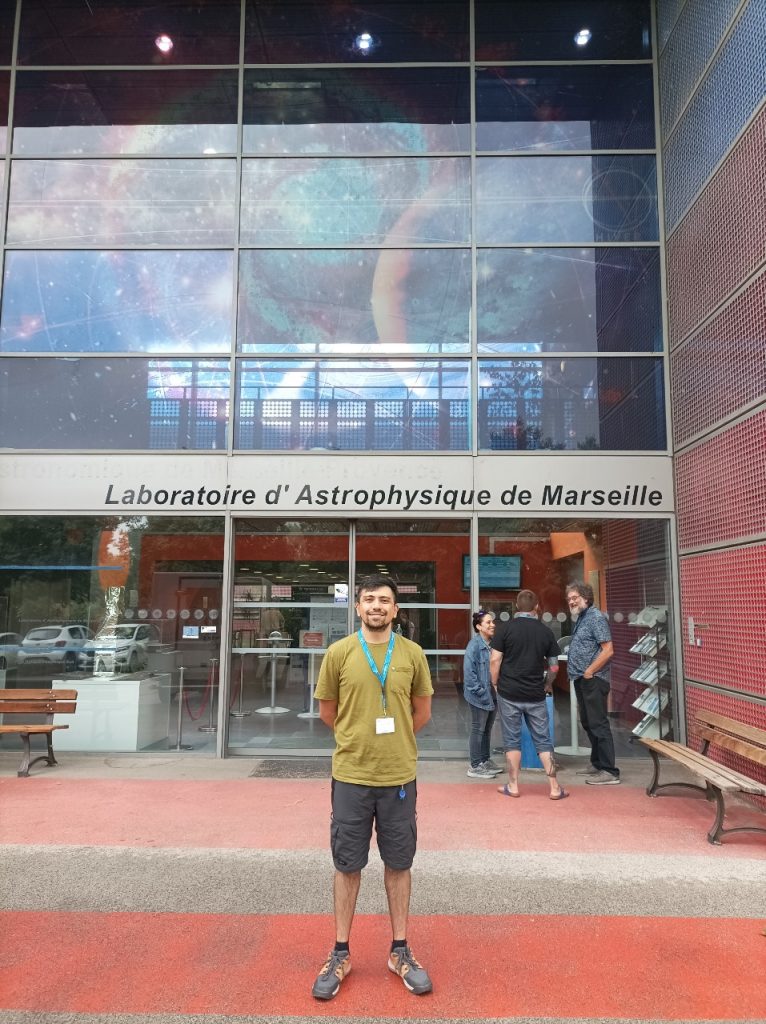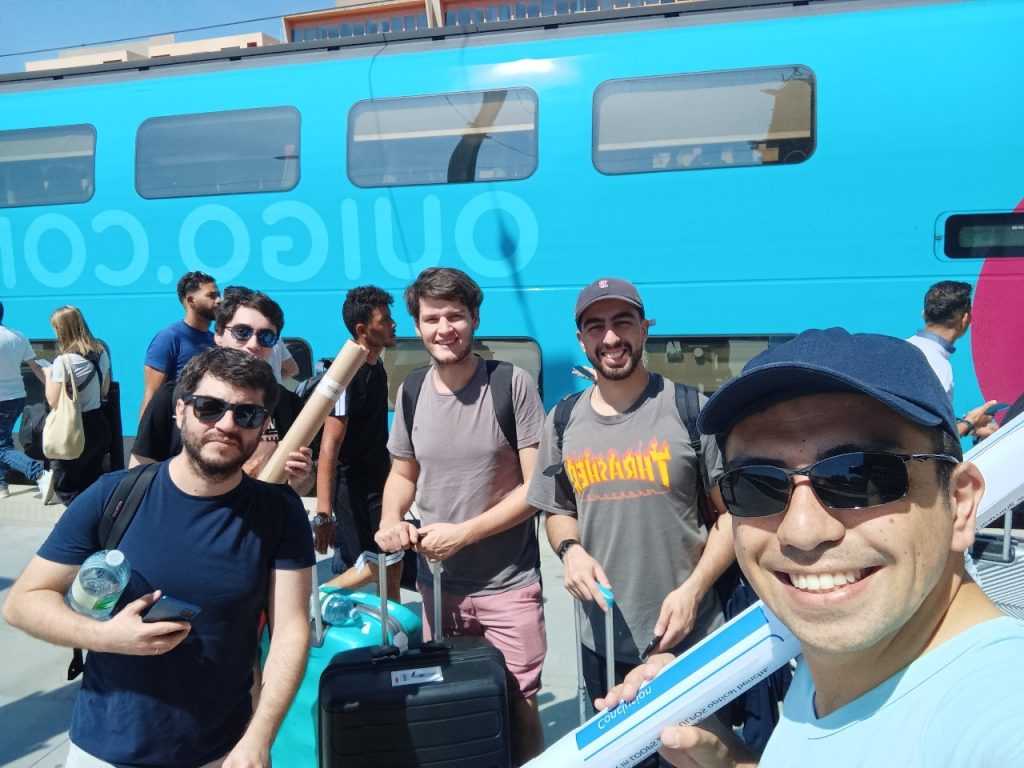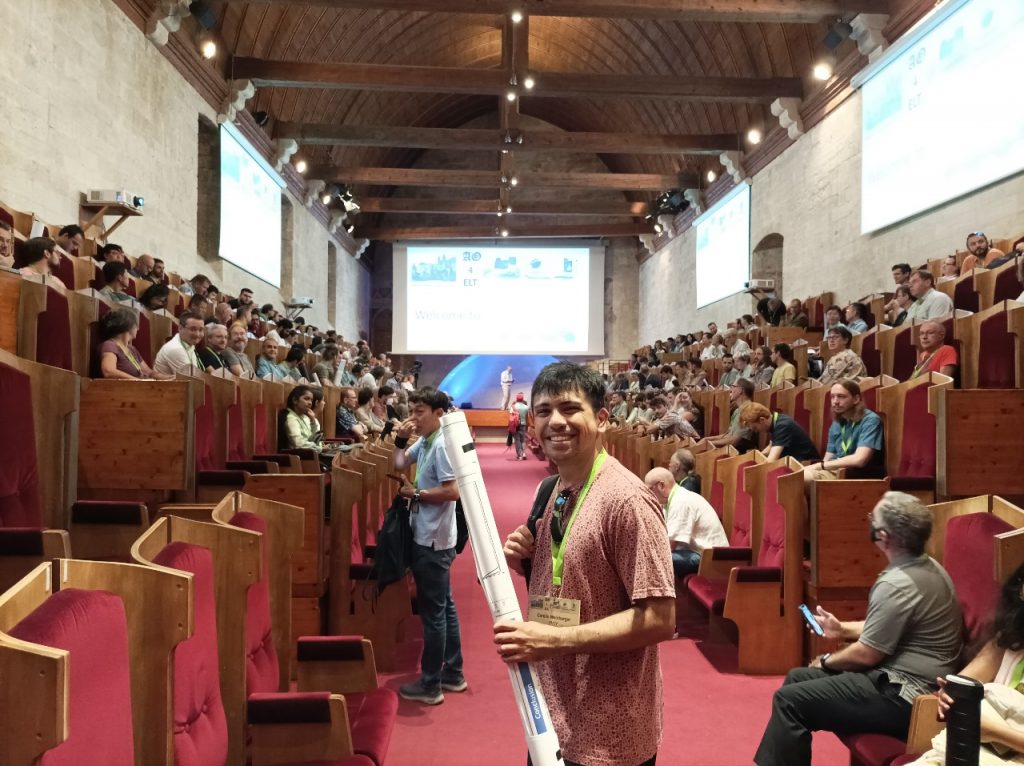Camilo Weinberger, an Optolab member, holds a Bachelor’s and Master’s degree in Physics from PUCV. In 2023, he went to France for his first research internship.
Camilo has been part of Optolab since 2019 when the laboratory had only 4 members. He is currently in the final year of his Ph.D. in Electrical Engineering at the School of Electrical Engineering at PUCV.
During the first semester of this year, Camilo did a 4-month internship at the Laboratoire d’Astrophysique de Marseille (LAM) and shared his experience.
How did the opportunity for this internship arise?
As the pandemic was coming to an end, and flights to Europe opened up, I collaborated with LAM in France for three months. I worked with a team of experts who have been working on turbulence and adaptive optics for years. My doctoral thesis topic is a blend of what we did in France and what I had previously done here. The proposal for a semester-long internship at the same laboratory stemmed from this collaboration.
At LAM, Camilo was introduced to a new sensor: a glass pyramid that separates light and allows for the identification of different atmospheric characteristics. His previous work involved the use of neural networks related to atmospheric turbulence, leading to his Ph.D. thesis topic: Neural Networks for the Pyramid Wavefront Sensor in Extremely Large Telescopes.
How was your experience?
We made excellent use of our time during the internship. What I highlight the most is the ability to have a direct relationship with experts. There were 5 experienced individuals with whom we could seek solutions to problems while having coffee or discussing other random things.
Additionally, the opportunity to apply the acquired knowledge practically was invaluable. I learned to control a telescope because they have access to an observatory called OHP (Observatoire de Haute-Provence) that did not have an adaptive optics system. They have a functional system in the sky that is always working, which is something we don’t have here.
Would you recommend someone to do an internship at the institution?
I highly recommend that students from the laboratory and the School of Electrical Engineering consider doing an internship at LAM because the team there is quite good. It serves as a personal experience because there were approximately 20 people, including Ph.D. students and post-docs from different countries, forming a group that was not only for work but also for socializing. The atmosphere is very welcoming.
How do you see the technological development of Optolab? Now that you can compare it with what you’ve seen in Europe.
We are on the right track at Optolab because Professor Vera utilized the resources we had very well to set up a state-of-the-art laboratory. In fact, going into technical details, when I had to train neural network systems, I did it here in Chile, not at LAM. I sent all the codes to train them here because the cluster—or server—we have at the School is much faster and more powerful than what they had there.



This was Camilo Weinberger’s experience at LAM. Being there also allowed him to participate in several conferences representing Optolab, such as the AO4ELT conference, where he presented his research in poster format.
These opportunities, in addition to being relevant to his current research, also provide him with the chance to enhance and grow professionally. He made more connections, getting to know more researchers and experts in the field who expressed interest in Camilo continuing his work in their laboratories.
What will be Camilo’s next destination? We will soon share it on our social media platforms.
